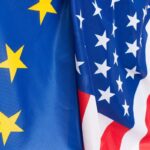Russia: Medvedev announces food import ban extension until late 2017

While Russia's embargo on sanctioning countries' foodstuffs is widely accepted as modus operandi in the produce sector, EU growers will take little solace from recent comments made by Prime Minister Dmitry Medvedev.
With the current ban due to expire on August 5, last week Medvedev announced the measures would be extended until the end of next year.
"Our manufacturers have repeatedly argued for the preservation of the food embargo on agricultural products and agricultural products from countries that have imposed sanctions against the Russian Federation or later joined them," he said in a meeting with the Russian Union of Industrialists and Entrepreneurs (RSPP).
"I assigned (government) to prepare a proposal to extend counter-sanction measures not for one year, but until the end of 2017. A petition to the President will be prepared."
He said the measure would help Russian agricultural enterprises to better plan their investments.
The counter-sanctions were initially taken as a one-year temporary ban in August, 2014, against sanctioning countries including member states of the EU, the United States, Canada, Norway and Australia.
In June the period was extended by one year, and shortly after the extended period came into effect the government added Albania, Montenegro, Iceland and Liechtenstein to the list.
It is estimated the ban - which also includes other foods such as meat, dairy and seafood - has cost foreign growers US$9.3 billion in lost sales to the world's largest nation, Interfax.ru reported.
In a separate announcement yesterday, Russia's Federal Service for Veterinary and Phytosanitary Surveillance (Rosselkhoznadzor) said it had seized 5,420 metric tons (MT) of plant products between August 6, 2015 and May 30, 2016.
Of this amount 5,274MT was destroyed, along with 207MT in products of animal origin.
Turkey is another country whose produce sector is caught up in political conflict with Russia, and a wide range of Turkish produce items has been banned from the market since January this year.
And for those growers whose crops are allowed into Russia, frequent and sometimes conflicting messages from different government departments in the press make planning export programs difficult.
However, in a joint press conference with Greek Prime Minister Alex Tspiras in Athens, Russian President Vladimir Putin made mention of an intention to restore relations.
The comments were published positively in the Russian media, but the context in full makes them appear to be more a flicker than a glimmer of hope that trade will be re-established, conditional upon the actions of the Turkish authorities.
"We certainly could never have imagined that a Turkish fighter jet could strike our bomber that had no protection against fighter planes," Putin said.
"We were not going to fight with Turkey and the Turkish army; otherwise we would have acted differently and used different means. I hope it will never come to that.
"However, what happened, happened. Moreover, not only an aircraft was downed, but the pilot who ejected was shot, and according to international law, this is a war crime."
He said the Russian Government had heard explanations from the Turkish authorities, but was yet to hear an apology or any readiness to provide compensation for the damage.
"We hear about their wish to restore our relations. We would also like to resume our relations, and it was not us who destroyed them," Putin said.
"For decades, we had been doing everything to bring Russian-Turkish relations to an unprecedented level of partnership and friendship.
"However, apart form the wish to resume relations, something else should be done. We keep in contact with the Turkish side, the partners are communicating with us through various channels, and they know our answer. We are expecting some concrete steps from them. We have seen none so far."
Photo: www.shutterstock.com









































